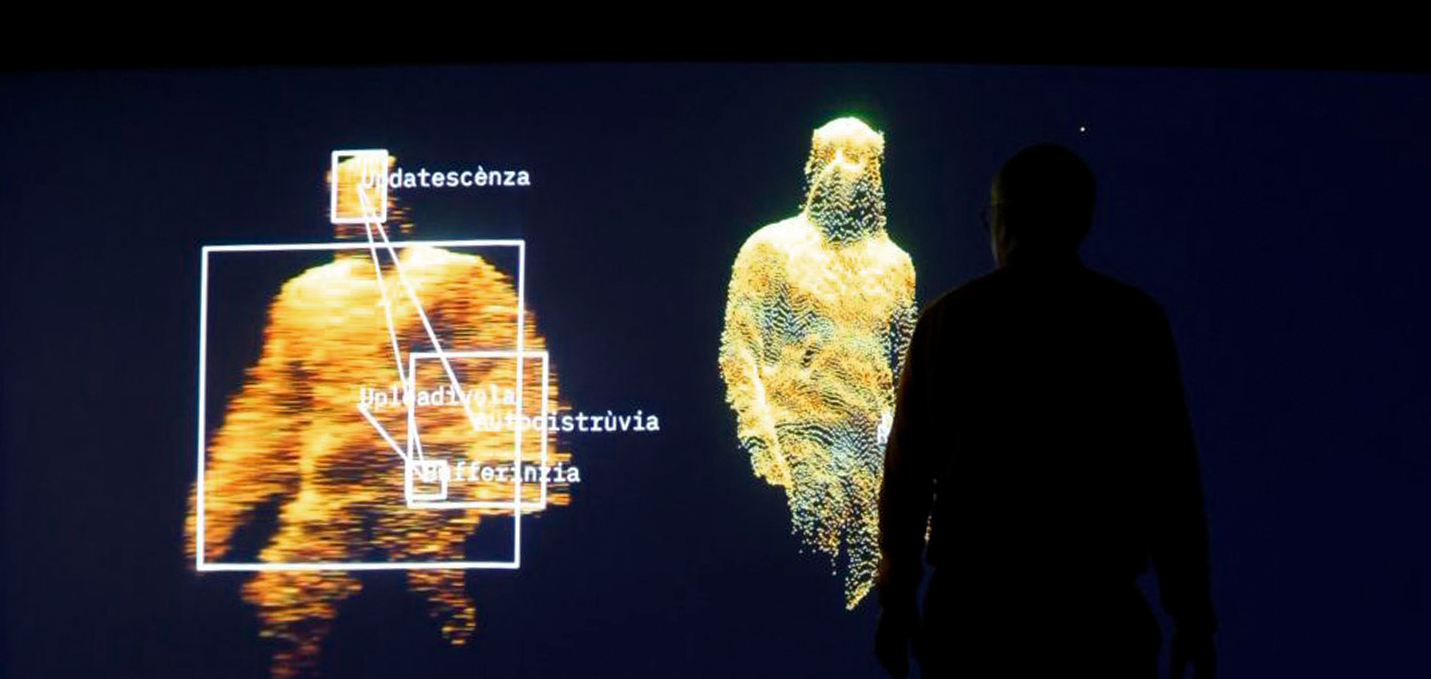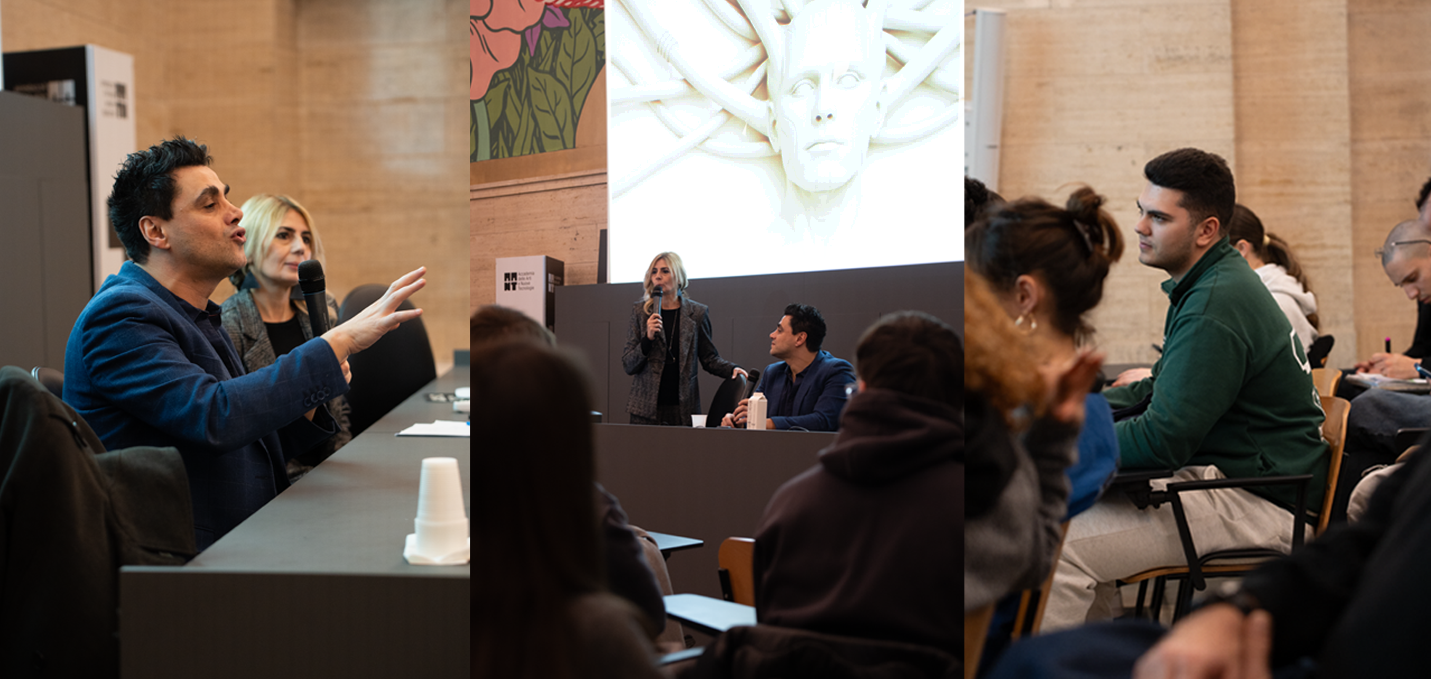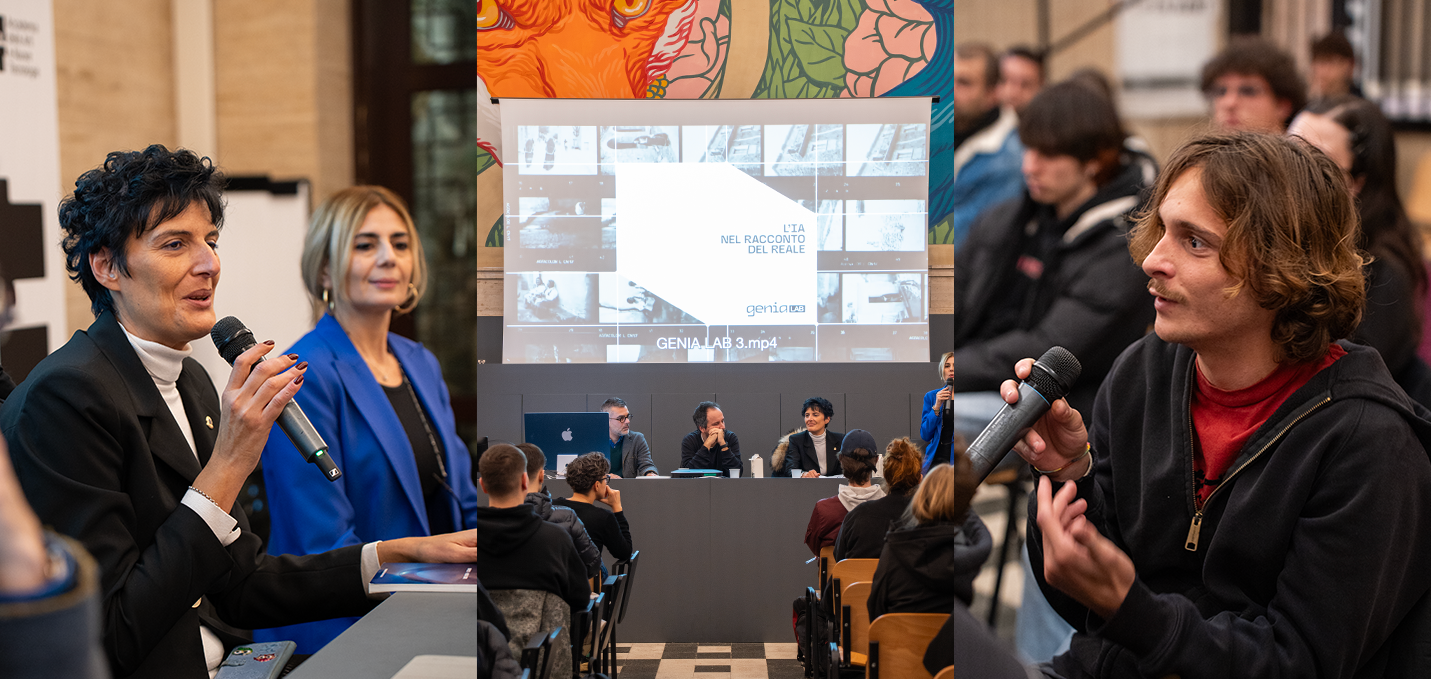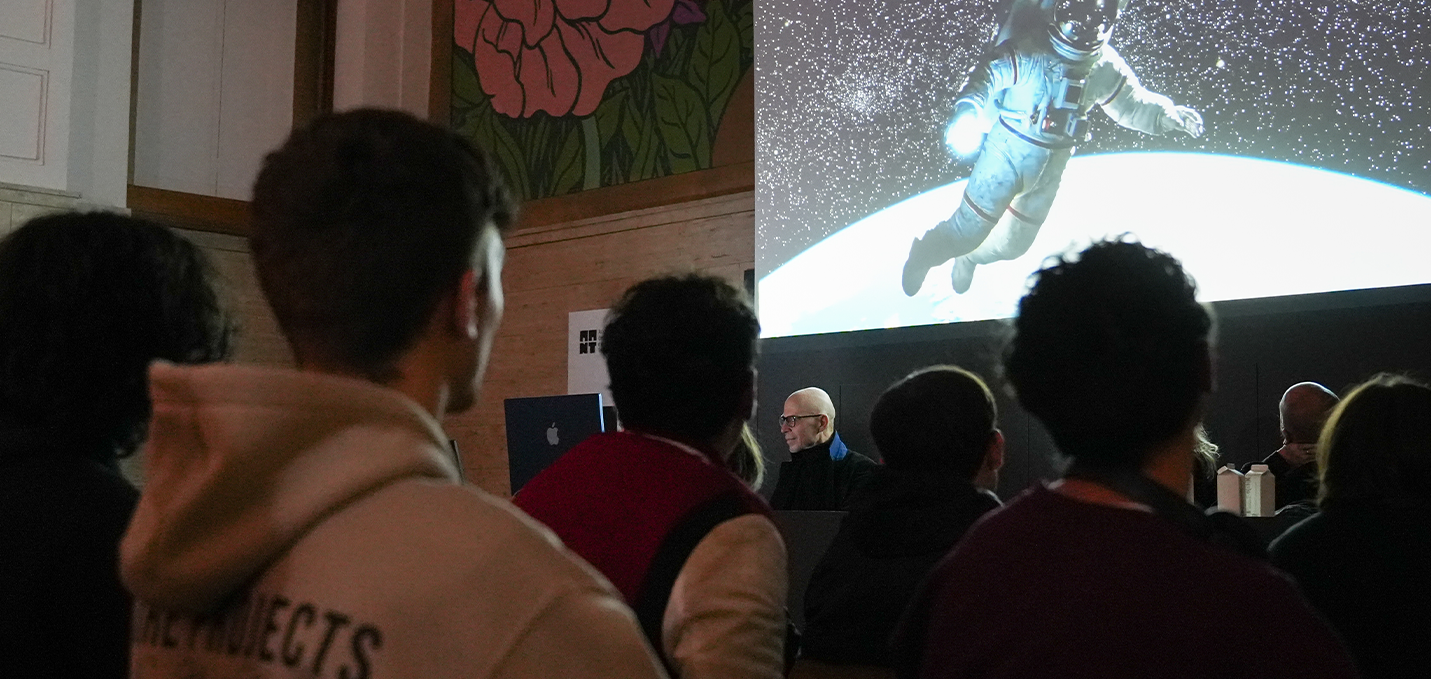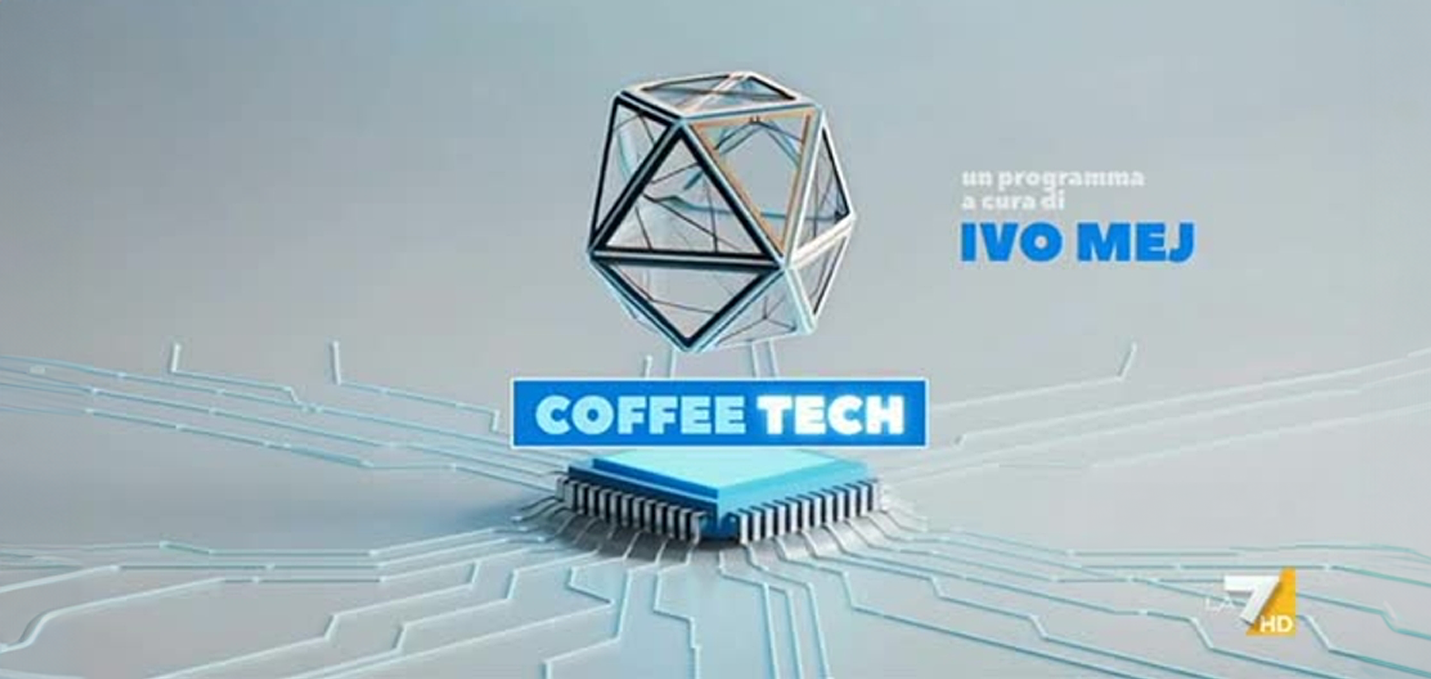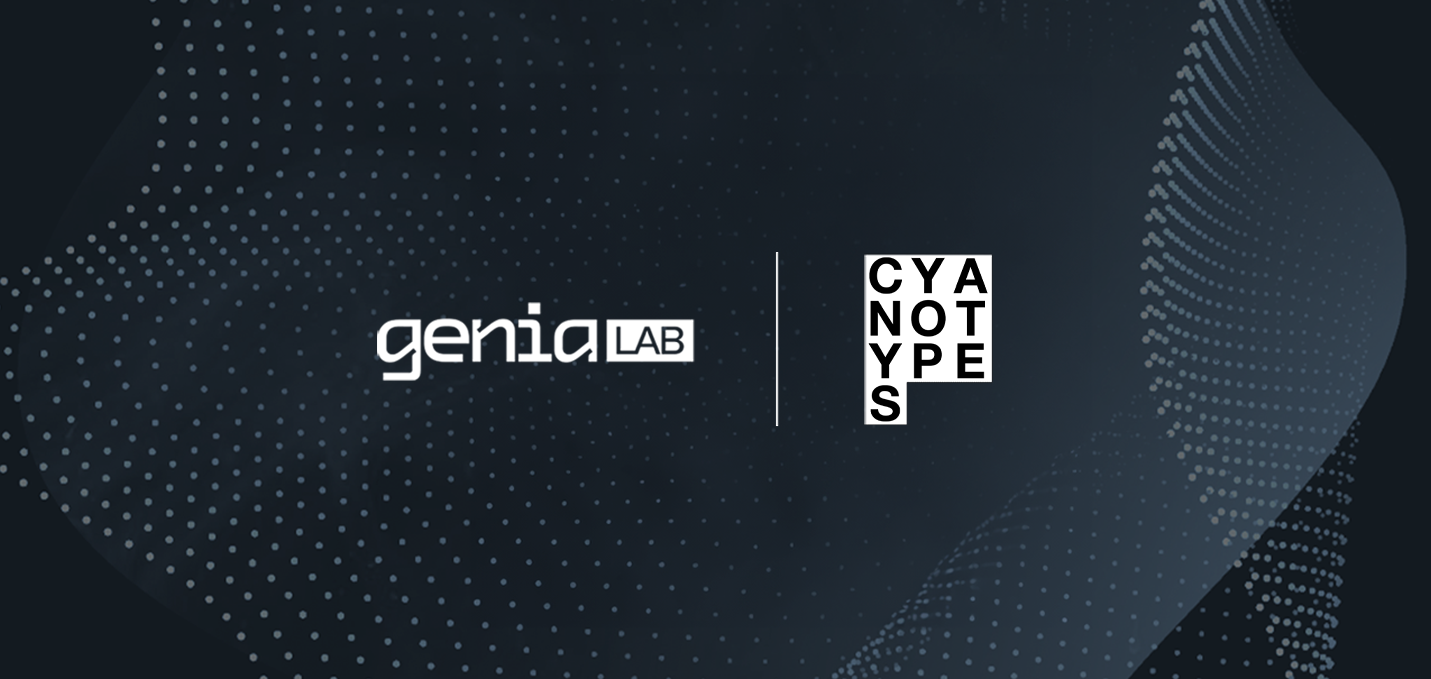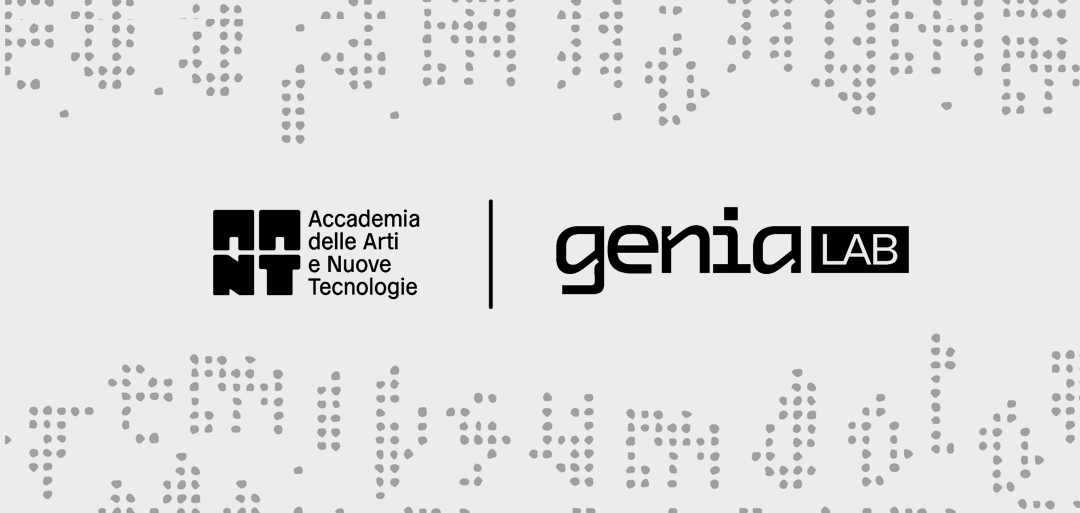With the Directorial Decree of July 23, 2025, AANT officially launches geniaLAB, a new interdisciplinary Research HUB dedicated to artificial intelligence, digital culture, cognitive technologies, and creative innovation. With this initiative, the Academy reaches a strategic milestone in strengthening its identity and positioning in the national and international research landscape.
The mission of geniaLAB is to serve as a permanent interdisciplinary observatory, open to dialogue with external experts, for the co-creation of innovative projects aligned with the Academy’s strategic vision. The HUB is conceived as a laboratory of excellence, combining the Italian tradition of art, philosophy, communication, and media with technological innovation, while developing critical and creative approaches to the transformations brought by AI in the contemporary age.
geniaLAB aims to contribute to the advancement of artistic and scientific research, and to the innovation of teaching methods in the disciplinary fields of AANT, by experimenting with new techniques and didactic models to enrich and expand its educational offer. It will be devoted to critical inquiry, creative experimentation, and advanced training in the fields of generative AI, cognitive technologies, and their cultural, artistic, and social implications.
The Statute of geniaLAB defines a series of specific objectives, including:
- Critically analyzing the impact of artificial intelligence and cognitive technologies on society, culture, and human experience;
- Developing innovative methodologies for interdisciplinary research on emerging technologies;
- Promoting critical and creative literacy in generative AI technologies;
- Training researchers, artists, designers, and professionals to consciously navigate the AI ecosystem;
- Exploring the applications of AI in the creative industries and cultural heritage sectors;
- Developing new models and technological solutions for the humanistic and artistic domains of the Academy.
The program of geniaLAB embraces a broad spectrum of research areas, reflecting the highly transdisciplinary nature of the initiative. Topics explored range from the philosophy and anthropology of cognitive technologies, to the analysis of the relationship between artificial intelligence, digital culture, and society, and to creative and experimental methodologies for using AI in art and design.
Other research lines include:
AI applications for cultural heritage and digital archives;
Innovation in the creative industries and design fields;
Development of innovative pedagogies for the AI era;
Ethical and democratic governance of technologies;
The study of computational aesthetics and artificial poetics.
The governance of geniaLAB, as outlined in the decree and Statute, includes a Coordinator leading the HUB and a Scientific Committee supporting its strategic direction.
Prof. Gianna Angelini, Scientific Director of AANT, has been appointed as Coordinator of geniaLAB, with a renewable three-year mandate. She is responsible for representing and managing the HUB’s operations.
The Scientific Committee is composed of prominent figures from both within and outside the Academy, with expertise in the fields of art, philosophy, technology, and digital culture. Its members are:
Gianna Angelini
Rossana Quarta
Simone Arcagni
Maurice Benayoun
Luna Bianchi
Alex Braga
Massimo Canevacci
Pier Luigi Capucci
Matteo Ciastellardi
Andrea Colamedici
Derrick de Kerckhove
Maura Gancitano
Marco Gori
Paolo Granata
Sabina Minardi
The Committee is chaired by Andrea Colamedici.
geniaLAB is designed as an open and inclusive initiative, in ongoing dialogue with the wider world. Through this HUB, AANT expresses its strong commitment to active collaboration with experts, academics, research centers, as well as with cultural industries and national and international partners, with the aim of sharing knowledge and developing joint projects.
The Statute allows for the affiliation of both AANT faculty members and scholars from other AFAM institutions or universities, in addition to external experts. Partnerships and research agreements with public and private entities are encouraged, thus contributing to the Academy’s third mission.
With the launch of geniaLAB, AANT strengthens its identity as a leading institution in research and education at the intersection of art, culture, and emerging technologies. This new HUB is not merely an internal research center, but a catalyst for innovation and cross-disciplinary dialogue, positioning AANT as an authoritative player in the contemporary landscape of cultural and technological transformation.
Through geniaLAB, the Academy affirms its readiness to contribute with ideas, projects, and expertise to the ongoing global debate on artificial intelligence, digital culture, and the future of creativity.
